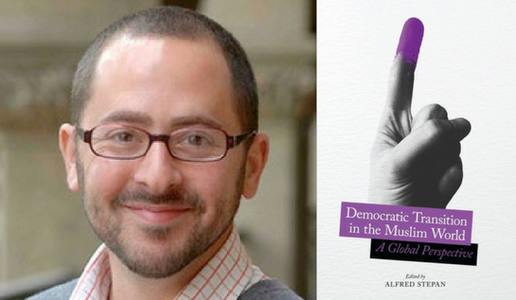Menchik Publishes Chapter on Islam and Democracy
Jeremy Menchik, Assistant Professor of International Relations at the Fredrick S. Pardee School of Global Studies at Boston University, published a recent book chapter on democratic transition in the Muslim world.
Menchik’s chapter, entitled “Crafting Indonesian Democracy: Inclusion-Moderation and the Sacralizing of the Postcolonial State,” was published as part of Democratic Transition in the Muslim World: A Global Perspective which was edited by Alfred Stepan (New York: Columbia University Press, 2018).
Democratic Transition in the Muslim World convenes leading scholars to consider the implications of democratic success in Tunisia and failure in Egypt in comparative perspective. Alongside case studies of Indonesia, Senegal, and India, contributors analyze similarities and differences among democratizing countries with large Muslim populations, considering universal challenges as well as each nation’s particular obstacles.
From the text of the chapter:
The centrality of Islamic organizations to Indonesia’s successful democratic transition and consolidation has affirmed scholars’ view that the inclusion of anti-system parties in the political process fosters their moderation. What this view ignores, however, is that the inclusion of Islamic actors also changes the political system. In other words, Islamic society and the secular state coevolve. This coevolution is demonstrated empirically through a diachronic case study of the sacralizing of Indonesia’s postcolonial state from 1945-2014. As a result, the contemporary state is neither a secular nor a theocratic state, but rather somewhere in-between. Theoretically, this case suggests that sacralizing the postcolonial state is just as important for democratization in the Muslim world as are inclusion and moderation. In other words, for democratization to succeed in states like Tunisia and Indonesia, it is just as important that Islamic actors never fully “lose” as it is that they never fully “win.” In broader comparative perspective, given the salience of religion in contemporary Europe this chapter suggests that politics in peripheral states like India, Indonesia, and Tunisia where religious actors are central to the crafting of mutual accommodation may illuminate aspects of Europe’s present, rather than its past.
Jeremy Menchik’s research interests include comparative politics, religion and politics, Southeast Asia, and the Middle East. At Boston University he is a member of the graduate faculty of political science and coordinates the MAIA program with specialization in Religion and International Affairs.
